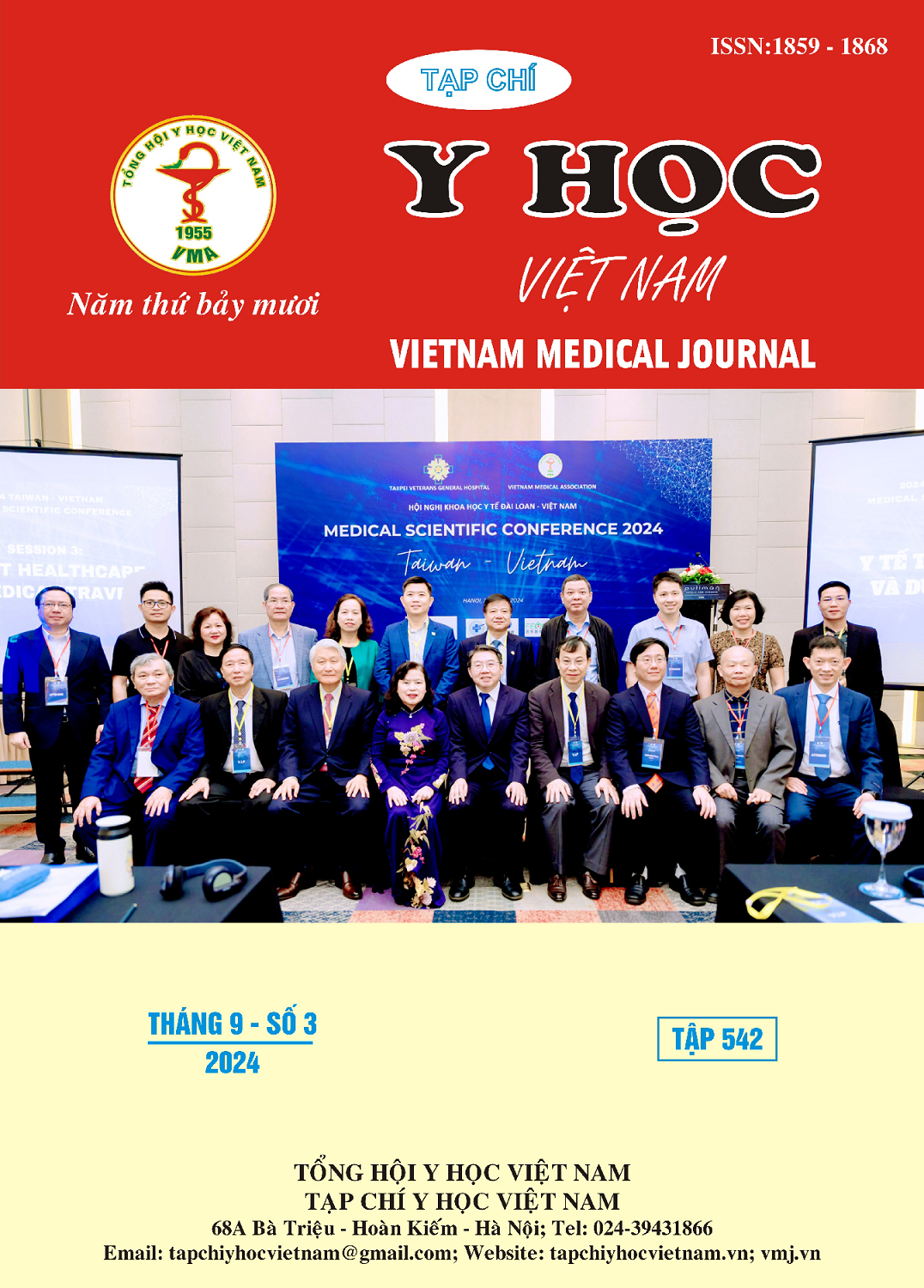CURRENT SITUATION OF SLEEP DISORDERS IN PEOPLE WITH BIPOLAR EMOTIONAL DISORDER IN THE DEPRESSION STAGE
Main Article Content
Abstract
Research objective: Describe the current state of sleep disorders in patients with bipolar affective disorder currently in the depressive phase. Subject and methods:Cross-sectional descriptive study of 110 patients diagnosed with bipolar affective disorder and current depressive episode treated at the National Institute of Mental Health Bach Mai Hospital from December 2023 to May 2024. Results: Women account for 70.9% more than men. Ages 50 and older account for the highest rate of 40%. Mean age and onset were 41.8 and 30.3, respectively. There were 101/110 patients with sleep disorders, accounting for 92.8%. The time of appearance of sleep disorders before the current period accounts for the highest rate of 63.6%. Time to fall asleep from 16-30 minutes accounts for the highest rate of 29.1%, followed by time from 31-60 minutes 27.3%. The 30-39 year old group has the longest time to fall asleep after waking up, 24.4 minutes; The lowest is the group under 20 years old with 17.7 minutes. The number of hours of sleep per night is 5-6 hours, accounting for the highest rate of 37.3%. Poor sleep efficiency accounts for the highest rate of 39.1%, with only 13.1% of patients having good sleep efficiency. Conclusion: Sleep disorders are common in bipolar disorder and depressive episodes and are an important issue that needs attention in the care and treatment of these patients.
Article Details
Keywords
: sleep disorders, bipolar disorder, depression.
References
2. Steardo L, de Filippis R, Carbone EA, Segura-Garcia C, Verkhratsky A, De Fazio P. Sleep Disturbance in Bipolar Disorder: Neuroglia and Circadian Rhythms. Front Psychiatry. 2019;10:501.
3. Hà Lê Thị Thu. Nghiên cứu đặc điểm lâm sàng và thực trạng điều trị trầm cảm ở người bệnh rối loạn cảm xúc lưỡng cực tại viện sức khỏe tâm thần, Tạp Chí Y học Việt Nam 2018,165:169.
4. Bobo WV, Na PJ, Geske JR, McElroy SL, Frye MA, Biernacka JM. The relative influence of individual risk factors for attempted suicide in patients with bipolar I versus bipolar II disorder. Journal of Affective Disorders. 2018;225:489-494.
5. Jackson A, Cavanagh J, Scott J. A systematic review of manic and depressive prodromes. J Affect Disord. 2003;74(3):209-217.
6. Harvey AG, Schmidt DA, Scarnà A, Semler CN, Goodwin GM. Sleep-related functioning in euthymic patients with bipolar disorder, patients with insomnia, and subjects without sleep problems. Am J Psychiatry. 2005;162(1):50-57.
7. Esaki Y, Obayashi K, Saeki K, Fujita K, Iwata N, Kitajima T. Association between circadian activity rhythms and mood episode relapse in


